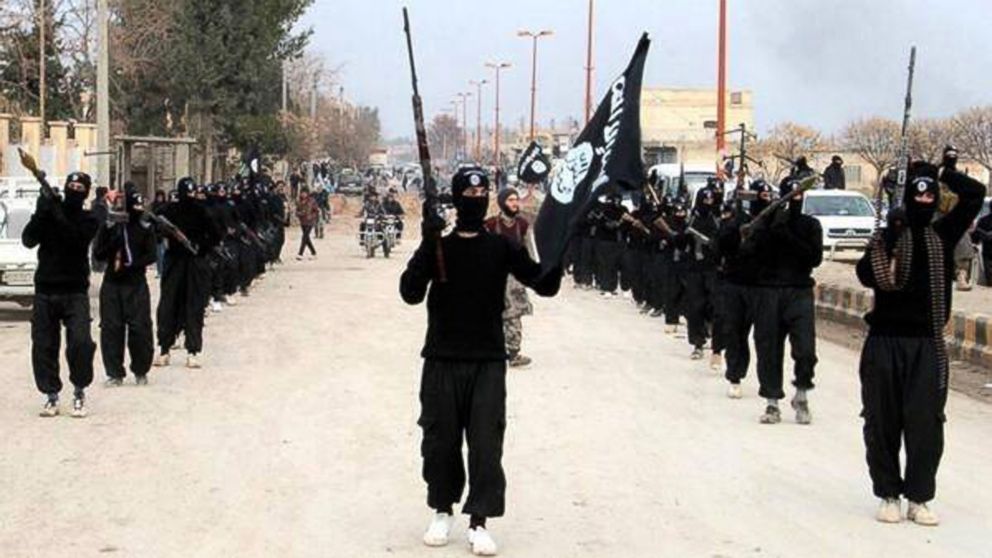Iraq, Syria, and ISIS: What It All Means
— -- As Twitter photos from jihadi fighters showed fighters from the Islamic State of Iraq and Syria (ISIS) driving tanks through a newly cut hole in the Iraq-Syria border, their comrades were continuing to make gains in an offensive in Iraq that launched over a week ago.
While ISIS has steadily grown in power and assets over the past year, this month's offensive caught the Iraqi and Syrian governments off guard. A now embattled Iraqi Prime Minister Nouri al-Maliki has been an ally of Syrian President Bashar al-Assad; both have been bolstered by patronage and military support from Iran. With Iran now drawn into the fight to preserve Maliki's government, the ISIS onslaught has significant consequences for all three countries, as well as their ally in Hezbollah.
To weigh in on the crisis we spoke to Aram Nerguizian, senior fellow at the Center for Strategic and International Studies (CSIS); Bruce Riedel, senior fellow at the Brookings Institute and the director of the Brookings Intelligence Project; Ted Karasik, director of research at the Dubai think tank Inegma; and Kirk Sowell, Iraq analyst and founder of the consultancy Uticensis Risk.
What Happens If US Troops Run Into the Iranian Military in Iraq?
Troops Surrounded, Trapped in Iraq's Key Refinery
Obama To Send Up To 300 U.S. Military Advisers To Iraq
Syria Deeply: How is the current situation in Iraq impacting the conflict in Syria? What will happen over the next few months?
Ted Karasik: The fight in Iraq is drawing attention away from what's happening in Syria because everyone is focused on the rapid move by ISIS to capture as much territory as they can. This event supercedes what has been happening in Syria.
Bruce Riedel: Baghdad is a primarily Shia city, and the Iraqi army, or what's left of it, and the Shia militias and Iranian revolutionary guards are probably going to ensure that Baghdad doesn't fall to ISIS. That doesn't mean that there won't be a lot of violence in Baghdad – there is every day – but I don't think the capital is likely to fall.
That means I think we're going to end up for the foreseeable future with what I call the two and a half state solution. There will be a Kurdish state in the north, which is well-run and well-ordered and has about a quarter of Iraq's oil reserves and is closely aligned with Turkey. There will be a Shia state in the south, which has three-quarters of the oil reserves and will be even more closely tied to Iran than it has been up until now, and to some extent a client state of the Iranians.
And then there'll be a half-state that straddles the Syrian-Iraqi border that might not even have most of the structures of the state, it will be more like a Wild West no-man's land than anything else. And it will have no oil and very little infrastructure, but it will be a breeding space for terrorists for Syria and Iraq, the region as a whole, and Europe and the U.S. That's probably what this is going to look like three months from now.
Aram Nerguizian: The highly unrealistic doomsday scenario everyone thinks about is that you have a group that's conducting warfare effectively on two fronts and expanding westward trying to contend both with other opposition factions and the regime, while also pushing east and south and dealing with Maliki and the Iraqi regime. It's a fun hypothetical model that doesn't bear any reality.




